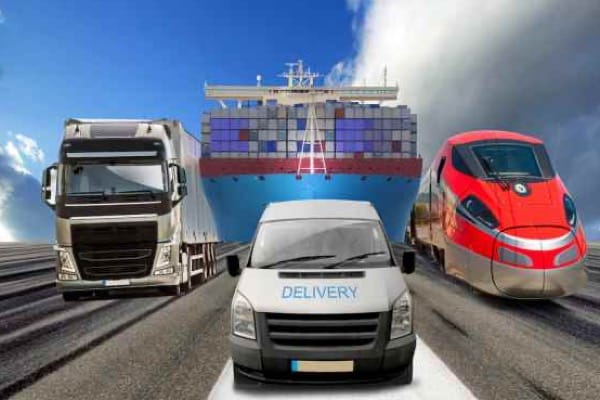Electric transport era gathers pace
Ferries, trucks, buses and commercial fleets are the next frontier for EVs.

Sydney’s iconic Freshwater ferries may soon evolve into locally made, zero-emission vessels to carry commuters across the harbour.
The New South Wales Government recently committed to modernising the fleet over an eight-year period as it seeks to upgrade the Freshwater-class vessels.
It says proposals are being gathered to explore how the fleet can incorporate zero-emission technology while maintaining the standards of the existing ferries.
“Sydney’s iconic double-ended Manly vessels started as steam ships, became the diesel ferries we know and love today, and will soon evolve into modern electric vessels,” Transport Minister Jo Haylen said.
Transport for NSW says it will work with local businesses to ensure the next generation of ferries are built domestically, drawing on local expertise to create a fleet fit for the future.
"Sydney’s iconic double-ended Manly vessels started as steam ships, became the diesel ferries we know and love today, and will soon evolve into modern electric vessels"
This marks a departure from previous government strategies which introduced overseas-made vessels that struggled with Sydney’s challenging swells.
The new vessels will replicate the current ferries’ ability to navigate rough waters and will feature dual-level boarding. In line with the shift towards greener transport, they will be powered by zero-emission electric propulsion.
On the Buses
Bus operators are also embracing the electric challenge, motivated by lower urban noise, air pollution, running costs and rising demands to meet zero-emission targets.
Last month, Australasian bus operator Kinetic announced that its electric bus fleet across Australia and New Zealand had grown to over 300 buses, supported by 10 electric depots.
Kinetic is now expanding into metropolitan areas and plans to supply 36 electric buses to Melbourne by mid-2025, supporting the Victorian Government’s commitment that all new public transport buses be zero-emission by that year.
Transport Canberra is also ramping up its electric fleet, having recently purchased 90 Yutong E12 battery-electric buses. The gradual rollout, expected to conclude by 2025, will focus on local assembly and sourcing, according to Yutong.
Yutong Australia assembles buses locally through partners VDI and Volgren Optimus with the first prototype of its E12 chassis recently showcased.
Yutong’s Asia-Pacific CEO Kent Chang said that by partnering with local distributors and manufacturers, it can offer its expertise in electric vehicle chassis technology, while its Yutong Electric Architecture (YEA) integrates EV software and hardware to improve efficiency and operations.
Cleaner trucks
Truck manufacturers are also embracing change, with Holcim Australia recently announcing the first Australian trial of a 100% electric concrete mixer truck in partnership with Putzmeister Oceania.
Holcim expects the SANY eMixer to contribute to reducing the carbon footprint on construction sites. During the early stages of the trial, Holcim reported that the eMixer had already shown “impressive capabilities,” completing multiple trips from the plant to job sites each day with an average of 35% battery charge remaining.
Local councils in Melbourne’s west are also stepping up in the transition to heavy battery electric vehicle (BEV) fleets with the help of $2.2 million in funding from the Australian Renewable Energy Agency (ARENA). The councils plan to deploy 65 light and seven heavy battery-electric vehicles as part of the three-year Local Council BEV Integration Project.
“This project highlights the intersection of clean energy, sustainability, innovation, and the important role local councils play in the clean energy transition,” ARENA CEO Darren Miller said.
Range anxiety
But the journey to widespread electric vehicle (EV) adoption in Australia is not without its challenges as many organisations cite the 'range anxiety' associated with electric batteries and limitations with available charging infrastructure.
Canadian automotive telematics company, Geotab, says it is working to address these concerns by providing technology to help businesses gather critical data on vehicle performance and energy use.
Geotab's EV Suitability Assessments (EVSA) were developed to offer insights from real-world driving behaviour and factors like temperature to available charging infrastructure, says Associate Vice President David Brown.
“With improvements in battery technology and government incentives, truck and bus fleets are poised to catch up with the electric vehicle revolution,” Brown said.
“Data-driven decision-making allows fleets to select EVs that fit their specific needs and address range anxiety, making a compelling case for transitioning to electric.”
Long-range view
This approach helps fleet operators make informed decisions about transitioning to EVs, ensuring that long-range requirements and heavy payload needs are met.
Brown said telematics can also optimise charging strategies for fleet setups, whether depot-based or decentralised, enabling vehicles to be integrated into various fleet scenarios while maximising efficiency and cost savings.
Geotab is currently working with Business NSW to pilot an electric vehicle program aimed at overcoming the challenges in regional areas. The not-for-profit organisation, which advocates for NSW businesses, used Geotab’s telematics to monitor vehicle performance, charging habits and energy consumption to assess the feasibility of EVs, even in areas where charging stations were few and far between.
"Efforts to decarbonise Australia's transportation industry will be vital to meet our clean energy targets, and telematics form just one part of the answer," Brown says. "Though there is still significant work to be done to achieve a full EV transition, Australia is making good progress."





